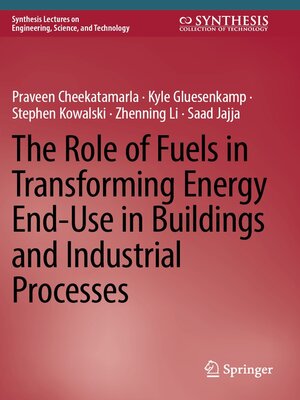The Role of Fuels in Transforming Energy End-Use in Buildings and Industrial Processes
ebook ∣ Synthesis Lectures on Engineering, Science, and Technology
By Praveen Cheekatamarla

Sign up to save your library
With an OverDrive account, you can save your favorite libraries for at-a-glance information about availability. Find out more about OverDrive accounts.
Find this title in Libby, the library reading app by OverDrive.



Search for a digital library with this title
Title found at these libraries:
| Library Name | Distance |
|---|---|
| Loading... |
Energy-efficient technologies are necessary to lower the carbon footprint for a transition towards clean energy in a sustainable manner. This book examines what role fuels have in the transformation of end-use in buildings and industrial processes. Energy-efficient technologies are necessary to lower the carbon footprint for a transition towards clean energy in a sustainable manner. Efficient utilization of primary energy resources, including renewables, to support the current and future energy needs while targeting grid resiliency, energy, and environmental security at an affordable cost is of significant value. The author analyzes heat pumps, fuel-driven thermal providers, and power systems configurations and looks at the sensitivity of the electrical grid's carbon intensity and tariff towards carbon footprint and energy costs compared with fuel-driven technologies. The role of low-carbon, zero-carbon, and carbon-negative fuels, such as power-to-gas (P2G), power-to-liquid (PtL), hydrogen, and biogas, in conjunction with polygeneration technologies, are discussed. This book also examines two different scenarios focused on the sensitivity of the pace of decarbonization of the electrical grid and fuel supply on operational energy-related carbon emissions.







